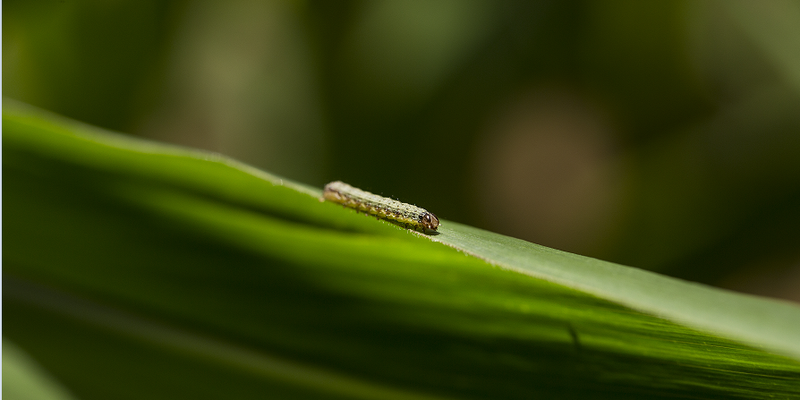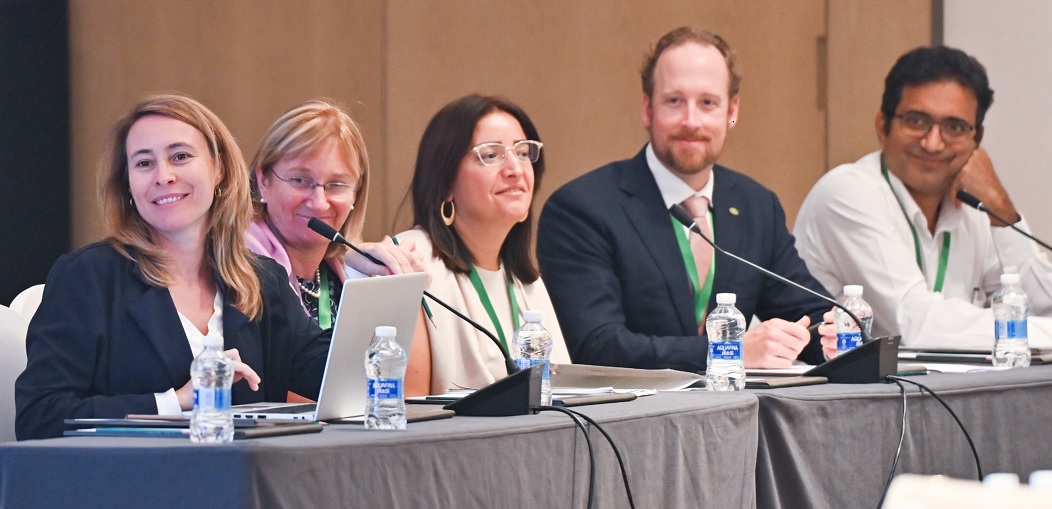Fall Armyworm global symposium spotlights strategies in pest prevention and preparedness
Posted on Wed, 22 Nov 2023, 08:42

©FAO/Lekha Edirisinghe
Rome, 20 November 2023. The International Plant Protection Convention (IPPC) Secretariat participated in the Global Symposium on Sustainable Fall Armyworm (FAW) Management from 31 October to 2 November 2023 in Beijing, China. Organized as part of the FAO-China South-South Cooperation Programmme, the symposium was part of ongoing global efforts to tackle FAW, which causes significant global crop loss, affecting food and income security. It aimed to provide a platform to share best practices and lessons learned in FAW management, formulate recommendations for a global response to future pest or pathogen invasions, and establish a technical network on sustainable management of FAW and future emerging pests.
The event, attended by stakeholders in the Global Action for Fall Armyworm Control (GA), was organised by the Food and Agriculture Organization of the United Nations (FAO), together with Chinese Academy of Agricultural Sciences (CAAS), and the National Agro-Tech Extension and Service Centre (NATESC) of the Ministry of Agriculture and Rural Affairs (MARA) in China.
“We must build on the lessons learned from this global action and ultimately share best practices to actively prevent, prepare for, and respond to future biological invasions,” said Beth Bechdol, FAO Deputy Director-General, in her video message.
Towards FAW prevention and preparedness
During the symposium’s spotlight session on FAW Prevention and Preparedness, Chris Dale, Chairperson of the FAO-IPPC FAW Phytosanitary Measures Technical Working Group, underscored the significance of global collaboration in preventing, anticipating and responding to FAW, over the past three years. He emphasized the importance of quarantine and phytosanitary measures, showing their efficacy in managing FAW and raising awareness of trade regulations to prevent the movement and introduction of FAW plant hosts and commodities.
Sarah Brunel, lead of the Implementation Facilitation Unit (IFU) and co-chair of the FAO/IPPC Fall Armyworm (FAW) Phytosanitary Technical Committee, represented the IPPC Secretariat at the Symposium. Her presentation at the FAW prevention and preparedness session focused on global FAW prevention and response strategies. She noted that as part of its FAW global coordination role, the IPPC developed several resources, guidelines, and e-learning courses on FAW prevention and preparedness. Brunel made an update on the IPPC's efforts in responding to Fusarium TR4 of banana, demonstrating a comprehensive approach to global plant pest initiatives, and highlighted next steps for the IPPC community to prevent future pest invasions.
She encouraged countries to participate in the global Pest Outbreak Alert and Response Systems (POARS), whose activities are expected to start in 2024. She informed participants about the IPPC guides and training materials, intended to enhance capacity and knowledge in managing plant pests, and are freely accessible. Brunel also highlighted the Phytosanitary Capacity Evaluation (PCE) tool which national plant protection organizations (NPPOs) can use to assess phytosanitary capacity and address gaps to enhance preparedness. Finally, she emphasised the importance of building partnerships with relevant organizations and stakeholders to collectively address challenges posed by emerging plant pests.
The session highlighted the significance of collaboration, information sharing, and using innovative strategies to safeguard global plant health. It was attended by international plant health experts from Australia, Italy, Samoa, and Tunisia. They shared insights, strategies, and experiences in managing FAW, focusing on prevention and preparedness.

© IPPC Secretariat
Regional perspectives
The symposium also featured presentations on FAW management in the Near East and Northern Africa, Pacific, and Europe regions. The presentations underscored the importance of regional coordination, training, awareness creation, stakeholder engagement, application of the pest risk analysis (PRA) tool in pest prevention and preparedness, and the importance of using the FAW programme as a case study to guide management of other regional transboundary pests.
Finally, the symposium proved the value of the global community working together towards a resilient future against pests like FAW, which cause huge economic losses and threaten global food security. “It is crucial that we transition from an emphasis on plant protection to plant health management and in this way, we can continue to contribute to One Health,” said Xia Jingyuan, Special Advisor to FAO Director-General and Executive Secretary of the Global Action for Fall Armyworm Control Secretariat at FAO.
Related information:
Update: Highlights of the FAW symposium
Publication: Prevention, preparedness and response guidelines for Spodoptera frugiperda (fao.org)

